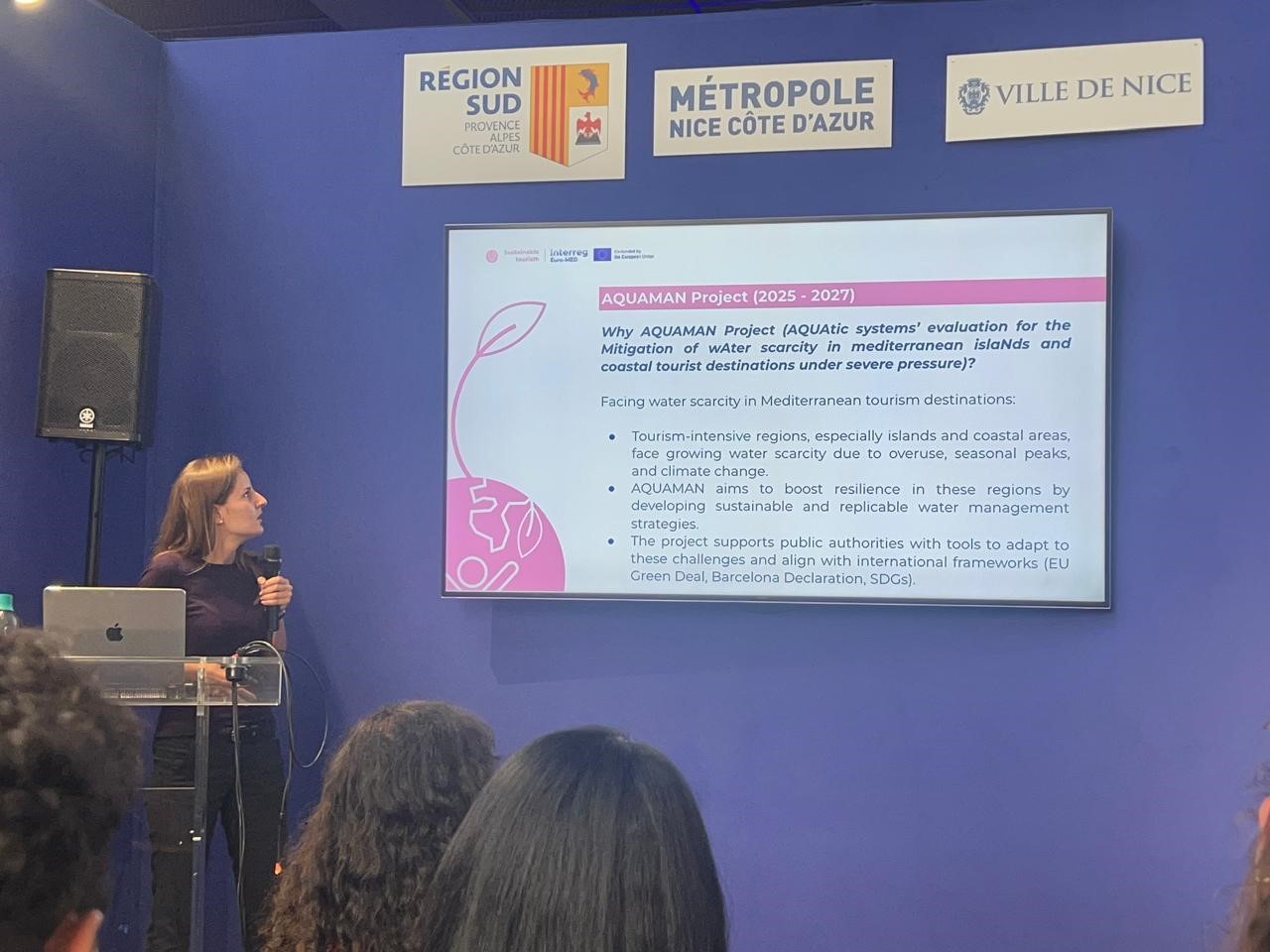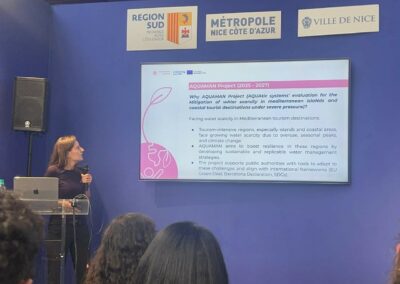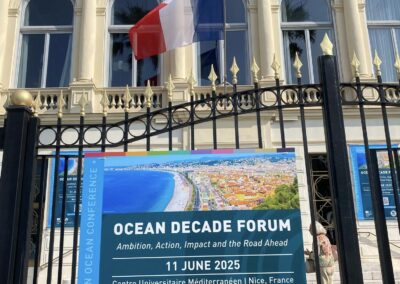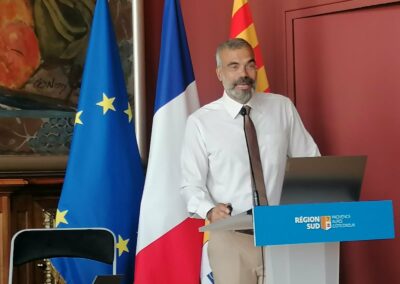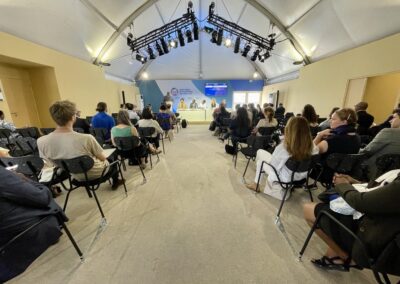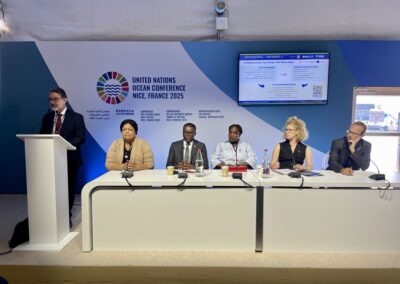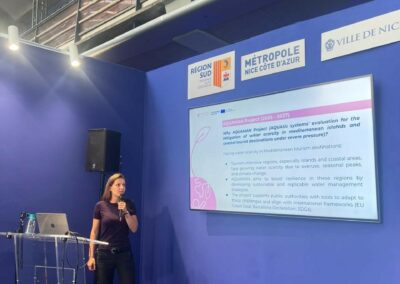At the 3rd UN Ocean Conference in Nice (June 11), the Interreg Euro-MED Sustainable Tourism Mission spotlighted bold Mediterranean solutions for island resilience. Discover 5 key ideas and inspiring examples on governance, circular economy, and climate-smart tourism making waves globally.
The Interreg Euro-MED Mission for Sustainable Tourism actively participated in the 3rd United Nations Ocean Conference (UNOC3) in Nice, bringing forward key Mediterranean perspectives and actions on sustainable tourism and island resilience. The Mission contributed through its presence at three key events emphasizing the strategic role of governance, circular economy, and climate action in coastal and island territories.
As part of the official UNOC3 programme, the event titled “Small Islands: Blue Circular Hubs for a 100% Renewable Future” took place on June 11, co-organized by Greening the Islands Foundation (Dialogue4Tourism project partner). This high-level ministerial panel and multistakeholder dialogue explored the unique vulnerability of small islands to climate change and their pioneering potential in building resilient, low-impact economies.
Speakers from Tonga from key international organizations—including UNDESA, WWF, and Blue Planet Alliance—shared points of view on how blue and circular economy models, particularly in offshore renewables, can help small islands transition to fully renewable futures. The Interreg Euro-MED White Paper on Tourism and Climate Adaptation by Dialogue4Tourism Project was featured during the session by Gianni Chianetta (GTI) reinforcing the Mediterranean’s leadership in integrated tourism and energy strategies.
In paralel, the Sustainable Tourism Mission was represented at the CPMR General Assembly, hosted at the Centre Universitaire Méditerranéen (C.U.M.), where governance-focused outputs of the Interreg Euro-MED projects were presented as the White Paper. Ioannis Mardikis (EPLO, Dialogue4Tourism project partner) introduced key deliverables such as: the Sustainable Tourism Policy Labs, the Network of Sustainable Tourism Observatories and the forward-looking policy recommendations the governance projects.
Moreover, the Interreg Euro-MED Missions on Sustainable Tourism and Natural Heritage hosted a joint conference titled Bridging Natural Heritage and Sustainable Tourism: Euro-MED Perspectives on Marine and Coastal Policies”. The event featured the key policy recommendations from Dialogue4Tourism Project. The AQUAMAN Project “AQUAtic systems’ evaluation for the Mitigation of wAter scarcity in mediterranean islaNds and coastal tourist destinations under severe pressure” showcased the foreseen tools for supporting multi-level governance and marine stewardship across Mediterranean islands. The presentation was by Ambre Badique (SMILO project partner). The NaTour4CChange Project, presented by Plan Bleu, illustrated the integration of climate-smart tourism with conservation strategies.
By aligning strategic governance tools with practical action in the field, the Sustainable Tourism Mission showcased how Euro-MED actors are co-shaping the global sustainability agenda, bridging local realities and international frameworks for island and marine resilience.

